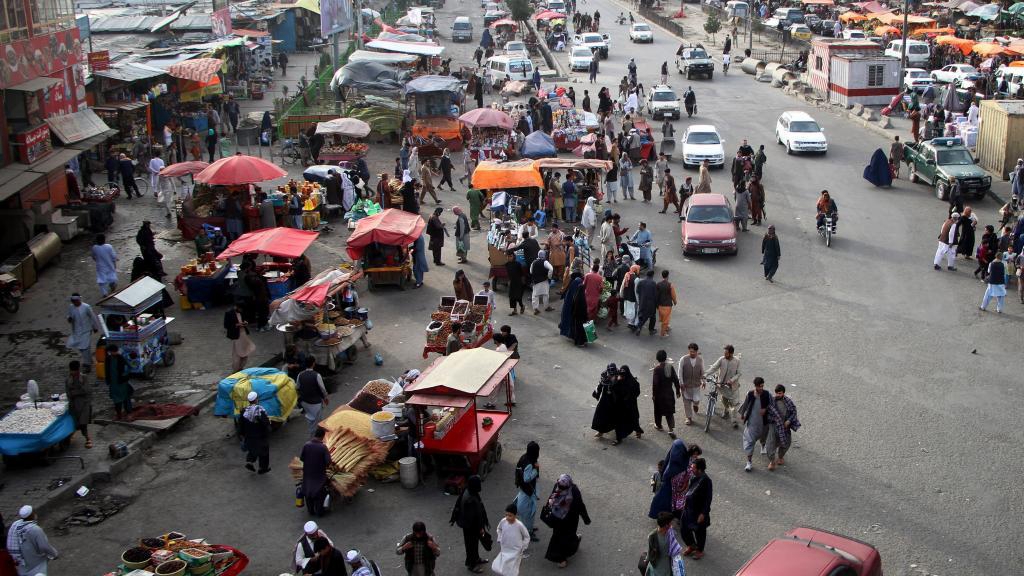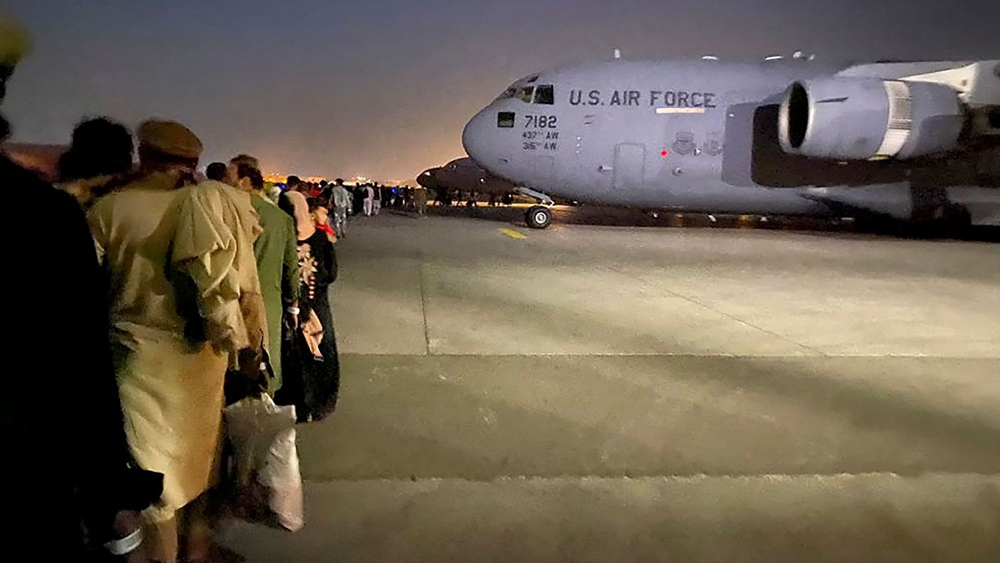
A view in Kabul, Afghanistan, August 20, 2021. /Xinhua
A view in Kabul, Afghanistan, August 20, 2021. /Xinhua
Editor's note: Abu Naser Al Farabi is a Dhaka-based columnist and analyst focusing on international politics, especially Asian affairs. The article reflects the author's opinions and not necessarily those of CGTN.
With the end of the U.S.' longest war and its futile "nation-building" mission, Afghanistan transitioned into a new era on August 15, 2021 — the Taliban took back the control of the country. The new era started with aspirations from different quarters that the Taliban 2.0 would undertake a more moderate form of governance. Moreover, the greatest concern regarding the Taliban's accession to power was that it wouldn't allow Islamist terrorist outfits like Al-Qaeda and the Islamic States to use Afghan territory as a launchpad to orchestrate any external terrorist attacks. And the Taliban did start to deliver on their commitment to not allowing terrorist fringes to use their soil as a terrorist-spawning ground.
To be true, the Taliban is not "holy basil" and has not yet been transformed to the point many of us had initially expected. A number of decisions its de-facto government has taken until recently like banning girls' schools and imposing an orthodox female dress code deserve criticism. But given that the current de-facto government is led by a group whose very foundation lies in the orthodox form of political Islam and its cohesion still struggles with the internal split between hardliners and moderates over policy orientation, expecting a radical policy shift from such a fledgling government is almost certainly a pipe dream.
Recent geopolitical gamble subtly played out by the West, particularly by the U.S., has further reinforced the skepticism over its political objective. There has recently been a surge in anti-Taliban resistance in Afghanistan. According to some media reports, including the Voice of America, at least half a dozen new anti-Taliban resistance platforms have emerged, excluding the existing Western-backed ones like the National Resistance Front (NRF) led by Ahmad Massoud. Here come the questions: Why has there been a sudden surge in the number of anti-Taliban resistance outfits? And who is backing them up to fight against the current Taliban government?
Since its takeover, the Taliban has demonstrated sizable deference to their commitment enshrined in the Doha agreement in February 2020 like not allowing the territory to become a hub for transnational terrorism. They have conducted to date a number of counterterrorism drives against ISIS-K and other fringe groups. As the threats both from Islamist terror groups and the resistance outfits had started to recede, and Afghanistan was seemingly shuffling on the path to stability, contradictory geopolitical underpinnings have begun their distractions on the way forward.

Afghan people queue up and board a U.S. military aircraft to leave Afghanistan at an airport in Kabul, August 19, 2021. /CFP
Afghan people queue up and board a U.S. military aircraft to leave Afghanistan at an airport in Kabul, August 19, 2021. /CFP
Suddenly, several anti-Taliban personalities are coming out of thin air and receiving substantial Western media projection. British public broadcaster BBC and the U.S. state-sponsored VOA are playing a pivotal role in this regard. Only recently, a quite unknown figure in the Afghan discourse, Sami Sadat, a former general in the Afghan army, became so important that the BBC has had to interview him and give his anti-Taliban resistance rhetoric an international projection. Besides, the VOA has very recently been reporting extensively about a new "fighting season" in Afghanistan, bringing resistance platforms into the limelight.
Ironically, the Western media try to tie the reported surge in the ani-Taliban resistance to something spawning out of the Taliban's failure to develop a politically and ethnically inclusive governance system. And out of political deprivation, and subsequent vengeance, the military, and civilian officials from the previous government are now joining or forming new resistance fronts, apart from existing ones. Given the political reality of the Middle East and Central Asia, it's not uncommon for members of the ousted government to resist the new one, as in the case of Iraq. But emerging resistance has a geopolitical flip side on the part of the U.S. efforts to undermine the Taliban government.
As countries in the region are trying to help stabilize Afghanistan and help with the reconstruction of the country while cautiously cooperating with the current Afghan government, the U.S., on the other hand, has launched an endeavor of inflaming anti-government resistance in Afghanistan. Even, the U.S. embassy in Tajikistan has reportedly maintained constant contact and has provided aid to the NRF, the prominent anti-Taliban resistance force based in Tajikistan. And strikingly relevant, the United States since its withdrawal from Afghanistan has not conducted a single counterterrorism strike in Afghanistan even though terror attacks in Afghanistan have surged in recent months.
Through this sabotaging geopolitical gambit, the U.S. might score short-term geopolitical points in its efforts to undermine the Taliban government, withdrawing support from the group to the resistance fronts, and thus, keeping a destabilizing Afghanistan. But, in the long run, it can not avert the backlash as such a dangerous geopolitical gamble is set to backfire.
(If you want to contribute and have specific expertise, please contact us at opinions@cgtn.com. Follow @thouse_opinions on Twitter to discover the latest commentaries in the CGTN Opinion Section.)

